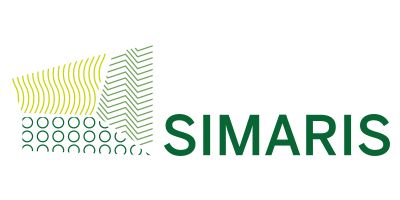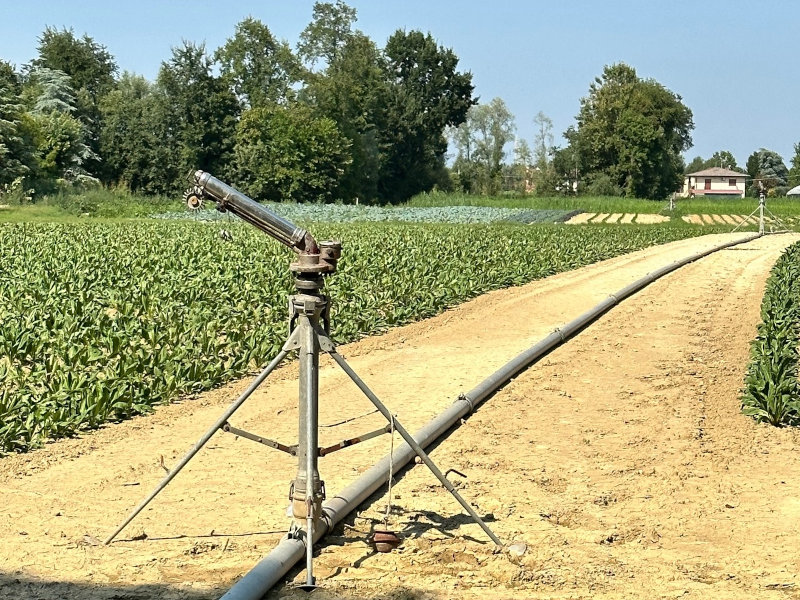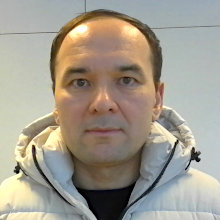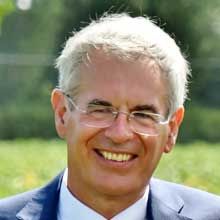SIMARIS
Strategic Investments in Mitigation, Adaptation, and Recycling Innovations at Basic Scale
Project
The objective of the SIMARIS research project is to construct a long-term and integrated water-energy-economic model that facilitates:
- the incorporation of an intertemporal investment and endogenous technological change into the water-economic modeling framework.
- the assessment of optimal investments over time, which promote the adoption of mitigation, adaptation, and resources recovery strategies.
- the investigation of the impacts of environmental changes (climate or water supply) and techno-economic instruments (price and non-price) on resource uses (water, land, energy), technology adoption rates, economic welfare, and potential for reducing greenhouse gas emissions.
Research
The proposed model comprises four modules: water, land use, energy, and economics. These modules are designed to work together to provide a comprehensive analysis of the interdependent relationships between water, land, energy, and economics.
The water module is built considering water flow, water distribution and use interlinkages as well as technological advancement effects in water system.
The land use module reflects the dependence of crop yield and biomass on land, water, fertilizer uses.
The energy module considers energy demand (fuel and electricity) for all water supply and agricultural operations, and energy supplies from both fossil and renewable sources.
The economics module maximizes net benefits over time and considers the intertemporal allocation of income between consumption and investments to enhance the recovery of capital stocks and to adopt adaptation, mitigation, resource recovery technologies. Income generation in the model depends on labor, capital, land, water, fertilizer and energy use constraints.
The developed model will be applied to the case of Central Asia, particularly Uzbekistan, where water scarcity and environmental degradation are serious challenges due to climate change, inefficient water institutions, and outdated infrastructure. To assess climate impact scenarios, the integrated water-energy-economic model is combined with downscaled assessments of regional climate impact outcomes from global climate models.
Outcomes
Peer reviewed journal articles
- Bekchanov M, 2025 (Preprint). Strategic Investments for Enhancing Irrigation System Resilience in the Face of Reducing Water Supply
- Bekchanov M, 2025 (work in progress). Zero-carbon transition pathways of economic development in Uzbekistan
- Bekchanov M, 2024. The impacts of technological change policies on water uses and virtual water trade in water-constrained settings. Journal of Cleaner Production, 456, 142378
- Bekchanov M, 2024. Conveyance efficiency and irrigation water productivity under varying water supply conditions in arid lowlands of Central Asia. Agricultural Water Management 293, 108697
- Babajanova M, Bobojonov I, Bekchanov M, Kuhn L, Glauben T, 2024. Can domestic wheat farming meet the climate change-induced challenges of national food security in Uzbekistan?, International Journal of Water Resources Development, 40(3), 448-462
Books
- Dissanayake R., A. De Alwis, M. Bekchanov, P. Gajanayake, S. Gunawardhana (Eds.), 2025 (forthcoming). Proceedings of the International Conference on Resource Efficiency Towards Sustainability ICRES 2025, Colombo, Sri Lanka. Springer Nature Singapore Pte Ltd. 457 p.
Guest lectures and workshop presentations
- Bekchanov M, 2025. Integrated Impact Assessment Modeling Food System Transformations. Presentation at ZALF, 3 July 2025, Müncheberg, Germany
- Bekchanov M, 2025. Water-soil degradation and integrated management solutions in the Aral Sea Basin. Online presentation at Aral Culture Summit workshop (organized by Uzbekistan Art and Culture Development Foundation), 27 May 2024, Venice, Italy
- Bekchanov M, 2024. Climate change impacts on water and food security, and adaptation investment needs (in Central Asia). Online presentation at CMCC/EIEE joint meeting, 8 October 2024, Milan, Italy
- Bekchanov M, 2024. Climate change and water security in Central Asia. Guest Lecture at Green University, 20 September 2024, Tashkent, Uzbekistan
- Bekchanov M, 2024. Strategic Investments in Mitigation, Adaptation and Recycling Innovations at Basin Scale - SIMARIS project funded by EU through Marie Curie Fellowship. A flash talk at IIASA Summer School on Systems Modeling, 15-26 July 2024, Vienna, Austria
- Bekchanov M, 2023. Challenges and optimal investment pathways to sustainable transformation of water, energy, and food systems in the Aral Sea basin of Central Asia. Presentation at CMCC brown-bag seminar, 2 May 2023, Venice, Italy
Presentations at academic conferences and research symposiums
- Bekchanov M, 2025. Investments in sustainable transition of irrigation systems in a water scarce region. A flash talk at Marie Curie Alumni Association (MCAA) Annual Meeting 2025, 21-22 March 2025, AGH University, Krakow, Poland
- Bekchanov M, 2024. How does irrigation system transition impact on energy use and greenhouse gas emissions? Presentation at International Research Symposium on “Agricultural Greenhouse Gas Mitigation: From Research to Implementation" hosted by the German Federal Ministry of Food and Agriculture (BMEL), 21-23 October 2024, Berlin, Germany
- Bekchanov M, 2024. Strategic investments for enhancing agricultural resilience in the face of reducing water supply. Online presentation at Integrated Assessment Modeling Consortium (IAMC) Annual Meeting, 22 October - 6 November 2024, Seoul, South Korea.
- Bekchanov M, 2024. Water-Economic Research in Central Asia: Insights gained from Sub-National to Basin-Scale Integrated Assessment Modeling Explorations. ZEF international conference on “Sustainable Solutions: Shared Futures: Development Research for the 21st Century”, 30 September - 2 October 2024, Bonn, Germany
- Bekchanov M, 2024. The impacts of technological improvements on water uses and virtual water trade in Uzbekistan. International Input-Output Association (IIOA) Conference, 1-5 July 2024, Santiago, Chile
- Bekchanov M, 2023. Integrated Assessment Model for analyzing Water-Energy-Food nexus in Central Asia. Italian Association of Environmental Resource Economists (IAERE) Conference, 23-24 February 2023, Naples, Italy
- Bekchanov M, 2023. Possible and Plausible Climate Futures in Central Asia. IAMO Forum, 21-23 June 2023, Halle, Germany
- Bekchanov M, 2023. Cross-country analysis of future agricultural labor supply change induced by global warming. Online participation in Integrated Assessment Modeling Consortium (IAMC) Annual Meeting, 14-16 November 2023, Venice, Italy
- Bekchanov M, 2022. Climate-Health-Economics Nexus analysis using Global Climate-Energy-Economic Model. Online participation in Integrated Assessment Modeling Consortium (IAMC) Annual Meeting, 28 November - 2 December 2022, Maryland, the USA
Conference organizations
- International Conference on Resource Efficiency Towards Sustainability ICRES 2025. Chaired by: Prof. Ranjith Dissanayake, Prof. Ajith de Alwis, and Dr. Maksud Bekchanov. 13 March 2025, INSEE and ecocycle gapHQ, Colombo, Sri Lanka
- International Scientific and Practical Conference “Priority directions of complex socio-economic development of the region” PDSED 2023. Organized by: Prof. Ilyos Abdullaev, Dr. Akram Hasanov, Dr. Maksud Bekchanov et al., 27-29 April 2023, Urgench State University, Urgench, Uzbekistan
Participation in professional trainings and forums
- The International Conference on Digital Technologies for Sustainable Crop Production (DIGICROP 2025; Online conference). Organized by: DigiCrop.Net Consortium (Center for Digital Agriculture - CDA at University of Illinois at Urbana Champaign, ETH Zurich, PhenoRob / Bonn University, WUR), 8-9 July 2025, Bonn, Germany
- OECD Green Growth and Sustainable Development Forum 2025: Forests, agriculture & other land uses as a cornerstone of climate action (a hybrid event). Organized by: OECD (Organization for Economic Co-operation and Development), 2-3 July 2025, Paris, France
- AGMEMOD Agri-Food Projections Training 2025. Organizers: Dr. Myrna van Leeuwen and Prof. Dr. Roel Jongeneel, 17-20 June 2025, Wageningen University and Research (WUR), the Hague, the Netherlands
- MESSAGEix Capacity Building Workshop 2025 ("Global Energy-Economic modeling"). Organizers: Dr. Siddharth Joshi and Dr. Paul Kishimoto. 4-13 June 2025, International Institute for Applied Systems Analysis (IIASA), Vienna, Austria
- Applied Data Analysis: Introduction to and Application of the Partial Equilibrium Model CAPRI in Market and Policy Analysis 2025 (a hybrid workshop). Instructors: Dr. Alexander Gocht, Dr. Torbjörn Jansson, Dr. Peter Witzke, and Prof. Dr. Harald Grethe, von Thünen Institute and Humboldt University Berlin, April-July 2025, Berlin, Germany
- REMIND introductory workshop 2024 ("Global Climate-Energy-Economic modeling"; online event). Instructor: Dr. Lavinia Baumstark, Potsdam Institute of Climate Change (PIK), 20-22 November 2024, Potsdam, Germany
- 18th Ruhr Graduate Summer School 2024 - Economic analysis of net-zero emissions policies using GAMS and MPSGE. Instructors: Prof. Dr. Christoph Boehringer and Prof. Dr. Volker Clausen, 7-11 October 2024, Ruhr Graduate School in Economics / University of Essen-Duisburg, Essen, Germany
- Summer School on Systems Modeling 2024. Course Directors: Prof. Dr. Hans Joachim Schellnhuber and Dr. Fabian Wagner, 15-28 July 2024, IIASA, Vienna, Austria
- The EuroScience Open Forum 2024 - Life changes science (Forum funded by European Union), 12-15 June 2024, International Congress Centre in Katowice, Poland
- MAGPIE workshop & stories 2024 ("Global Agro-Economic modeling"). Instructor: Dr. Jan Dietrich, Potsdam Institute of Climate Change (PIK), 10-12 April 2024, Potsdam, Germany
- Science and management of climate change impacts 2024 (using GEMPACK software and Intertemporal Computable Equilibrium System - ICES model). Instructors: Prof. Dr. Francesco Bosello and Dr. Gabriele Standardi, Euro-Mediterranean Center on Climate Change (CMCC) and Ca’ Foscari University of Venice, February-March 2023, Venice, Italy
- “Generic Academic Skills” workshop. Organizer: Prof. Dr. Jochem Marotzke, Max-Planck Institute for Meteorology and University of Hamburg (UHH), 2022-23, Hamburg, Germany
- “Learn to lead” qualification program. Organized by: Human Resources Development Department / UHH, 2022-23, Hamburg, Germany
Project documents and deliverables
- SIMARIS Final Project Report (2024), 45 p
- SIMARIS Dissemination and Communication Plan (2024), 11 p
- SIMARIS Data Management Plan (2023) and Carrer Development Plan (2023), 10 p
- SIMARIS Research Project Proposal (2021), 37 p
Group
Maksud Bekchanov
Principal Investigator
Carlo Carraro
Supervisor
Francesco Bosello
Supervisor





